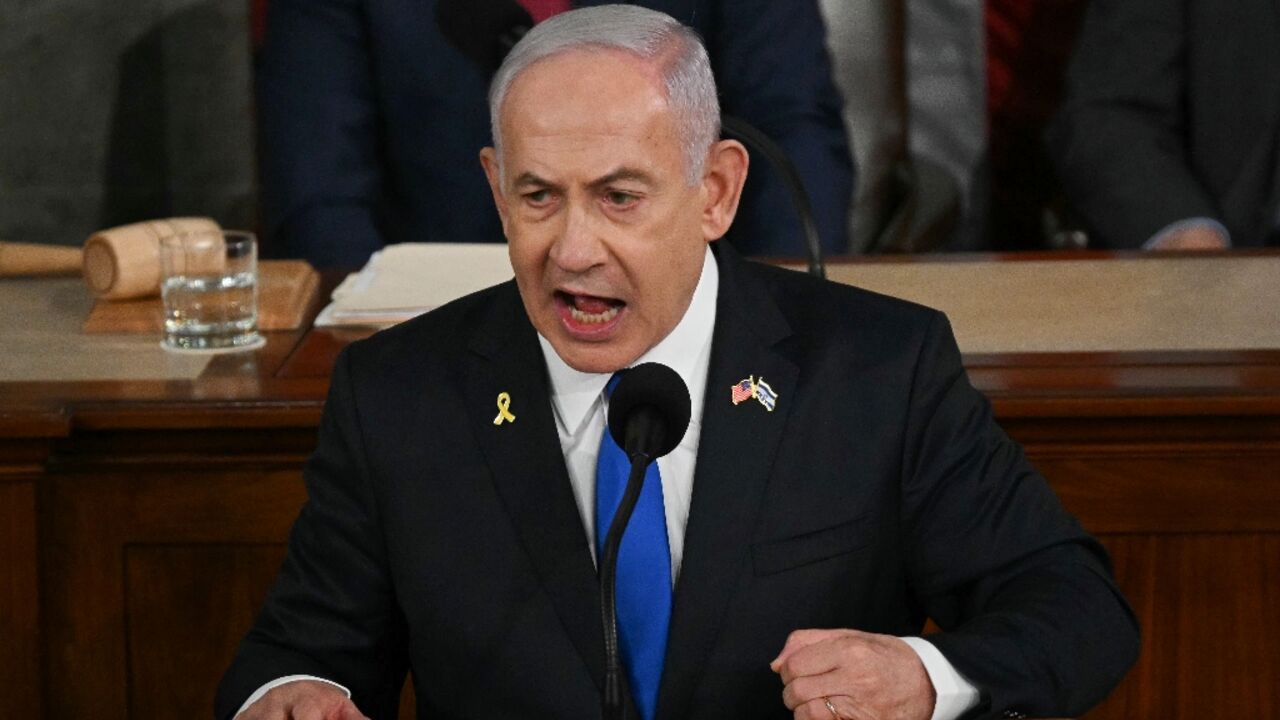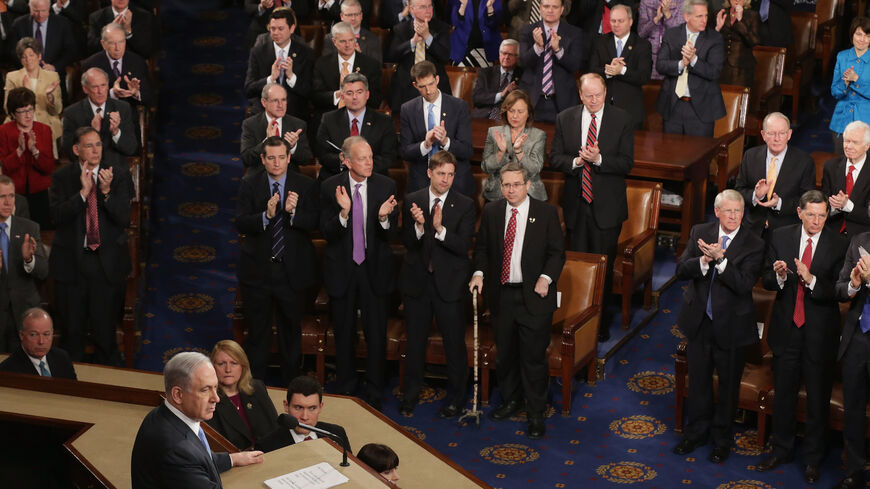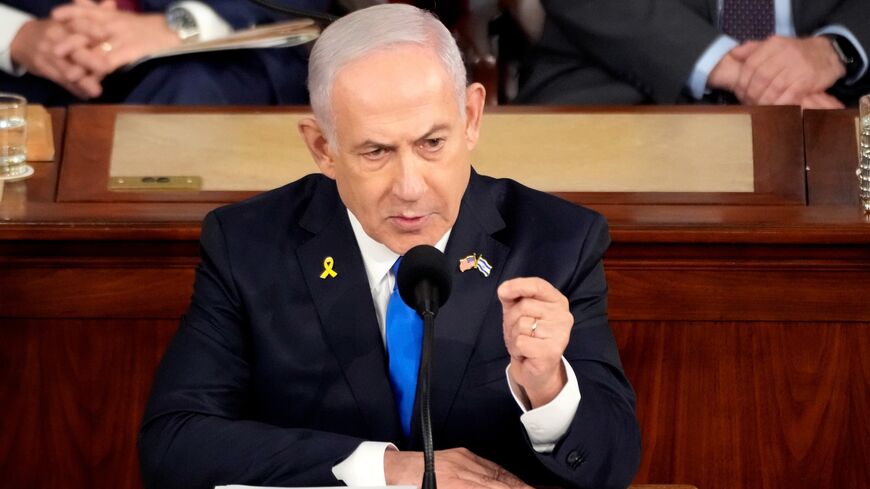Israeli PM urges global alliance against Iranian 'axis of terror'

Israeli Prime Minister Benjamin Netanyahu slammed Gaza ceasefire demonstrators Wednesday and called for a global alliance against the Iranian regime he accuses of funding them, as he addressed a US Congress divided by the war.
Washington has become increasingly alarmed by the humanitarian toll of Israel's nine-month campaign in the narrow coastal territory, and protests in Israel and the United States have been ratcheting up pressure on Netanyahu.
The prime minister hit back at his critics in a speech at the US Capitol, accusing Tehran of funding and promoting US-based anti-Israel protest -- and called Gaza peace activists "Iran's useful idiots."
"America and Israel today can forge a security alliance in the Middle East to counter the growing Iranian threat," he told lawmakers as demonstrators burned his effigy in the streets beyond the historic Capitol complex.
"All countries that are in peace with Israel, and all those countries who will make peace with Israel, should be invited to join this alliance."
Iran, he said, was the "axis of terror" behind almost all sectarian killing in the Middle East. He argued that the United States and Israel "must stand together" against Tehran and its proxies.
"Our enemies are your enemies. Our fight is your fight. And our victory will be your victory," Netanyahu said to a standing ovation in the House chamber.
- Deep divisions -
But Americans are deeply divided over Israel's actions in Gaza as the death toll climbs, and the demonstration outside the Capitol swelled to thousands ahead of Netanyahu's appearance.
Activists were kept at least a block away by police who fired pepper spray, and they eventually dispersed.
Inside the House of Representatives -- one-half of the main Capitol building -- six protesters were arrested before Netanyahu began.
Rashida Tlaib, the only Palestinian-American lawmaker, waved signs from the floor calling Netanyahu a "war criminal" and accusing him of genocide.
The Israeli leader's visit came in the wake of a gunman targeting Republican presidential candidate Donald Trump, and President Joe Biden bowing out of the election and endorsing his deputy, Kamala Harris.
Netanyahu singled out both Biden and Trump for praise for their efforts towards Middle East peace.
Biden and Harris are both set to meet Netanyahu separately on Thursday, but Republicans nevertheless criticized Harris for skipping Wednesday's address.
Vice presidents typically preside over such occasions, and Senate leadership hopeful John Cornyn was one of a number of Republicans who called her no-show "disgraceful."
J.D. Vance, the Republican senator who wants to replace her as vice president, was not there either.
Netanyahu will also meet Trump -- with whose administration he had a much less fraught relationship than Biden's -- in Florida on Friday.
- 'Closest ally' -
Wednesday's address made Israel's longest-serving premier the first foreign leader to address a joint meeting of Congress four times -- pulling ahead of Britain's Winston Churchill.
But he has lost backing among dozens of liberal lawmakers, and some 68 Democrats -- including some of the most senior figures in Congress -- said they would not attend.
Netanyahu says only military pressure can free the hostages and defeat Hamas, which launched a shock attack on October 7 that resulted in the deaths of 1,197 people, mostly civilians, according to an AFP tally based on Israeli figures.
Netanyahu said he was "confident" in efforts to secure the release of the 114 hostages still in Gaza, where Israel's retaliatory military campaign has killed at least 39,145 people, also mostly civilians, according to figures from the Hamas-run territory's health ministry.
The Palestinian militant group said Netanyahu was "misleading" the international community in his address, saying he "thwarted all efforts aimed at ending the war and concluding a deal to release the prisoners."
The United States has voiced concerns over bombing in heavily populated parts of Gaza but has defended Israeli interests while taking a key role in mediation efforts.
A senior Biden administration official said Wednesday that negotiations for a Gaza ceasefire and a hostage release deal were in their "closing stages," speaking on the condition of anonymity.
In Congress, Netanyahu called on Washington to fast-track military aid to his country to "dramatically expedite an end to the war in Gaza and help prevent a broader war in the Middle East."
But his call for support sparked a backlash from Democrats angry that there was little of substance in his speech about securing peace.
Influential former House speaker Nancy Pelosi called it "by far the worst presentation of any foreign dignitary" invited to speak before Congress.
wd-ft-nro-mca/cwl







